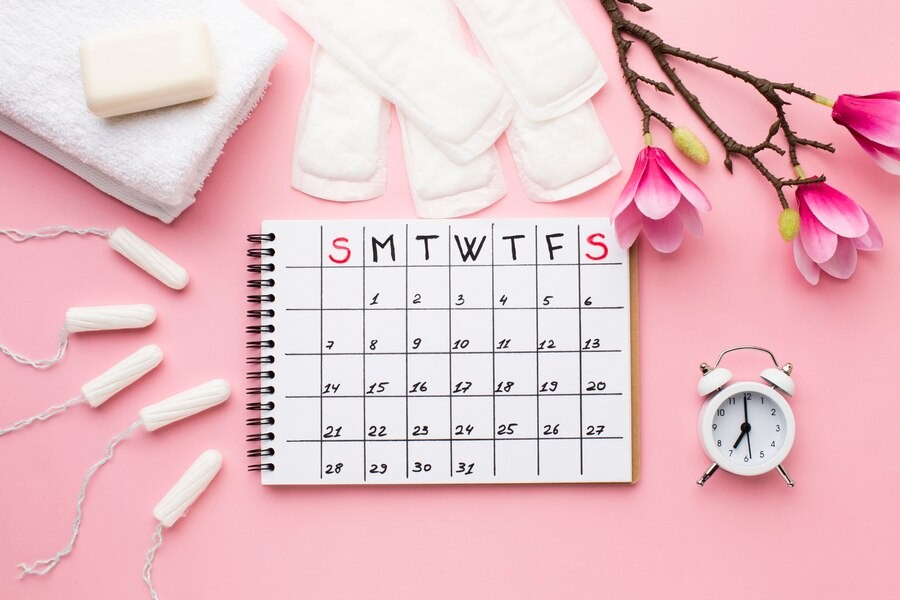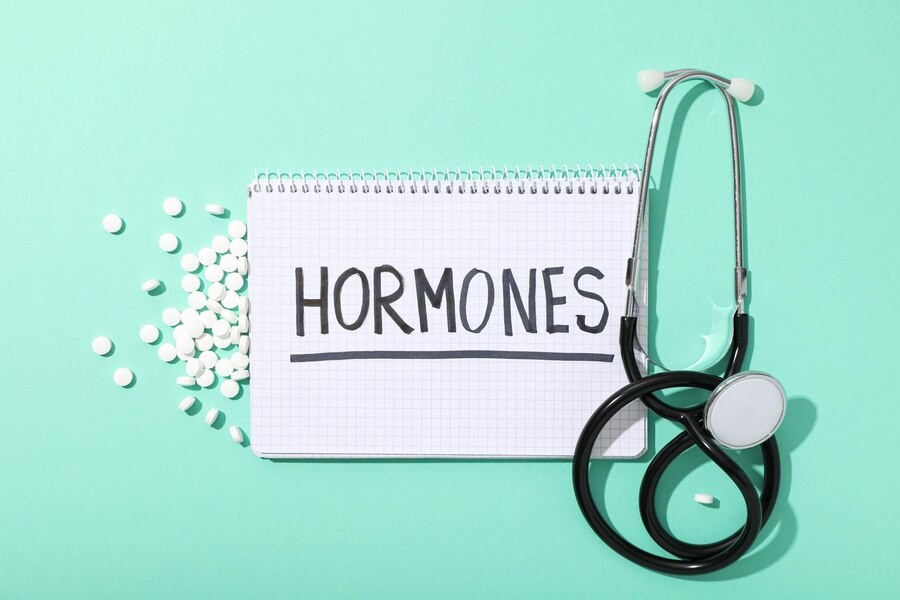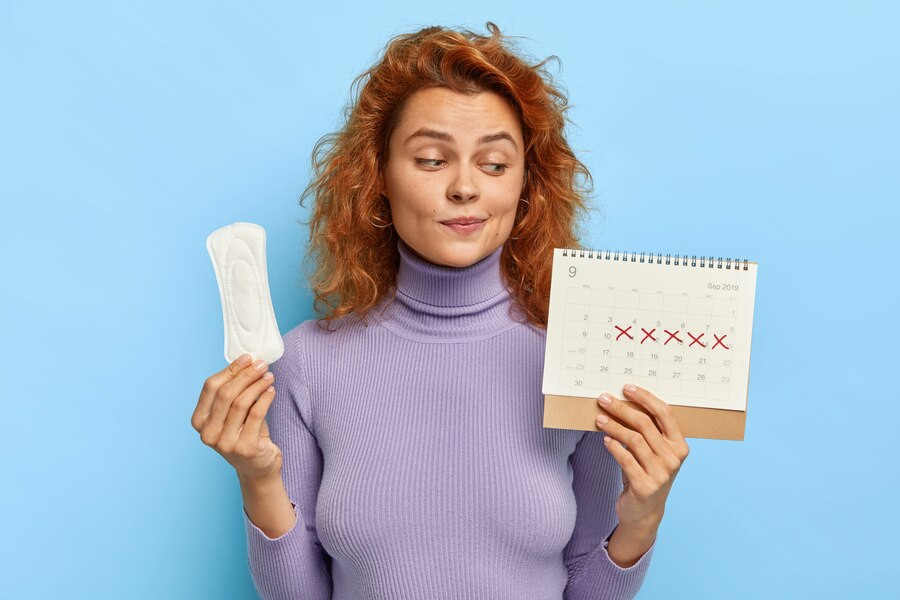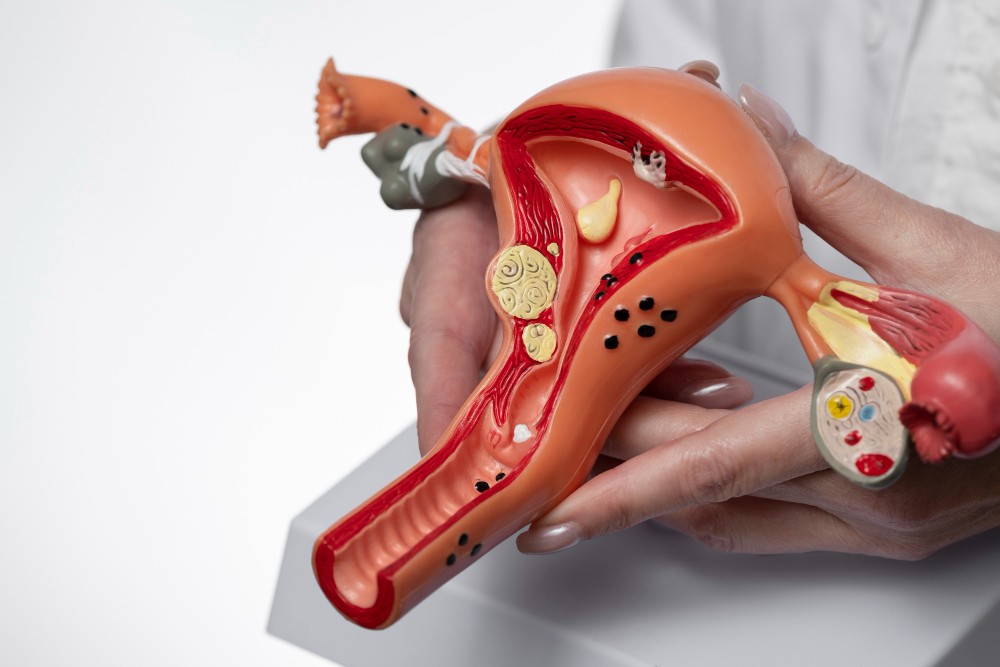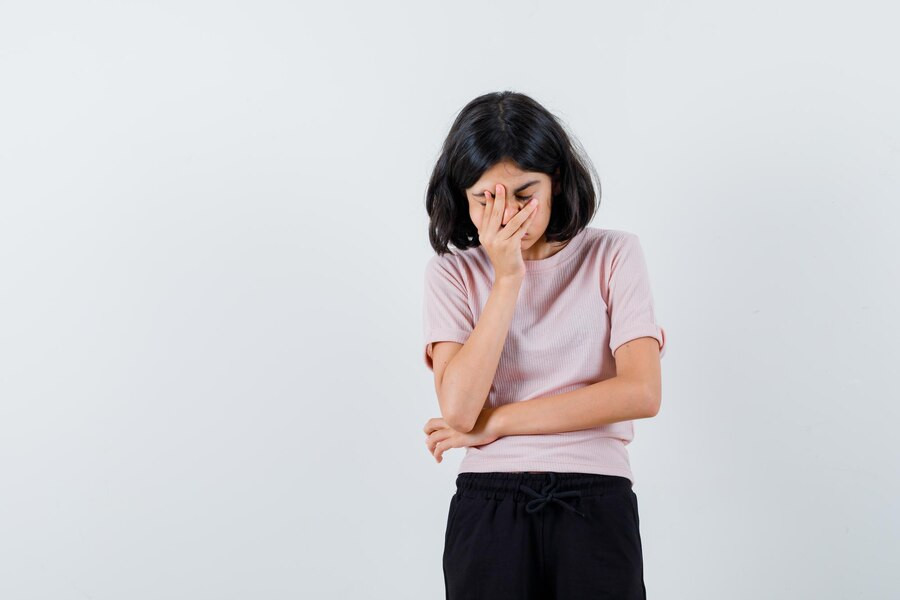The typical menstrual cycle spans between 21 to 35 days, with period itself usually lasting between 3 to 7 days. However, some women experience unusually short periods, lasting only 1 to 2 days.
Shorter period can sometimes signal underlying health issues. Understanding the causes behind it can help you adjust your lifestyle, recognize potential health concerns, and seek proper treatment if necessary.
Causes of Period That Is Too Short
Several factors can lead to a shorter menstrual period, including:
Hormonal Changes
The balance between estrogen and progesterone is essential for regulating the menstrual cycle and ensuring it lasts a normal duration.
When this hormonal balance is disrupted, for instance, through elevated estrogen or decreased progesterone levels, the uterine lining may become thinner than usual. This thinning can result in a shorter period with reduced blood flow.
Hormonal imbalances in women can arise due to various factors, such as high stress, rapid weight fluctuations, or medical conditions like polycystic ovary syndrome (PCOS).
Use of Hormonal Contraception
Hormonal contraceptives, such as birth control pills, injections, or implants, can influence both the length and volume of period. These contraceptives regulate hormones to prevent ovulation, which also affects the thickening of the uterine lining. As a result, the lining remains thinner, leading to minimal menstrual flow or even no period at all.
Many women experience changes in menstrual duration and volume when they start using hormonal contraceptives. Although these changes are often normal, it's still advisable to consult a doctor to rule out other health issues.
Endometriosis
Endometriosis is a condition where tissue similar to the uterine lining grows outside the uterus, typically on the ovaries, fallopian tubes, or surrounding areas. This disorder can disrupt menstrual patterns, causing lighter periods, shorter cycles, or even more intense, painful periods.
The growth of endometrial-like tissue outside the uterus triggers the formation of scar tissue, which can interfere with normal menstrual flow.
Unhealthy Lifestyle and Stress
A poor lifestyle, including lack of sleep, poor diet, and unmanaged stress, can affect the menstrual cycle. Chronic stress, for example, can disrupt ovulation or even prevent it altogether.
Intense physical exercise can also interfere with your period, as it leads to a significant reduction in body fat, which in turn impacts estrogen production.
Perimenopause
Perimenopause refers to the transitional period before menopause, during which hormonal fluctuations begin to affect the menstrual cycle. Women in this phase may experience irregular periods, including shorter cycles.
If you notice irregular or no periods, especially at a younger age, it’s essential to consult a doctor promptly to determine the underlying cause and explore treatment options.
Issues with the Uterus or Other Reproductive Organs
Issues related to the uterus or reproductive organs, such as polyps, fibroids, or endometriosis, can alter menstrual patterns. Although these conditions are typically associated with heavier or prolonged bleeding, they can occasionally lead to shorter or irregular periods.
If you observe changes in your menstrual cycle, it’s important to seek medical advice. Consulting a healthcare professional through the Ai Care app is also a convenient option. You can download the app from the App Store or Play Store for easy access to health consultations.
Want more information about other health conditions? Click here!
- dr Hanifa Rahma
Mary West (2023). Why did my period cycle end early, and is it common?. Available from: https://www.medicalnewstoday.com/articles/short-period
Brandi Jones, MSN-ED, RN-BC (2024). Reasons Your Period Is Shorter Than Normal. Available from: https://www.verywellhealth.com/why-is-my-menstrual-cycle-getting-shorter-5219496
Danny Bonvisutto (2024). Normal Period. Available from: https://www.webmd.com/women/normal-period
Mayo Clinic (2023). Menstrual cycle: What's normal, what's not. Available from: https://www.mayoclinic.org/healthy-lifestyle/womens-health/in-depth/menstrual-cycle/art-20047186
Cleveland Clinic (2022). Hormonal Imbalance. Available from: https://my.clevelandclinic.org/health/diseases/22673-hormonal-imbalance
Health Direct (2024). Hormonal contraceptives and periods. Available from: https://www.healthdirect.gov.au/hormonal-contraceptives-and-periods
Frances E. Casey, MD, MPH (2023). Hormonal Methods of Contraception. Available from: https://www.msdmanuals.com/home/women-s-health-issues/family-planning/hormonal-methods-of-contraception
Cleveland Clinic (2024). Endometriosis. Available from: https://my.clevelandclinic.org/health/diseases/10857-endometriosis
Hope Gillette (2023). Can Stress Mess Up Your Period?. Available from: https://www.healthline.com/health/stress/can-stress-mess-up-your-period
Dr. Esther Eisenberg (2024). My Periods Have Changed. Is Menopause Around the Corner?. Available from: https://www.acog.org/womens-health/experts-and-stories/the-latest/my-periods-have-changed-is-menopause-around-the-corner


